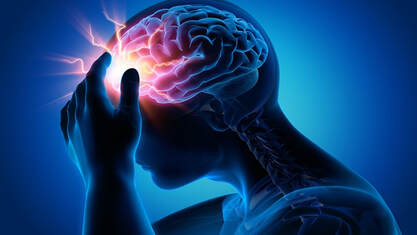Concussion Care
Concussions and their long-term effects are one of the biggest challenges athletes face today. Our concussion care and rehabilitation program at SPOT helps to guide athletes safely back to full participation in their sport and their day-to-day lives.
Our assessments are performed by a registered physiotherapist, and include thorough neurocognitive, vestibular-ocular and balance examinations. We use a variety of clinical measures, including the widely used ImPACT computerized screening tool, which help us with our decision making during each phase of recovery.
At SPOT, we understand that each individual is affected differently by a concussion and therefore requires individualized care.
The following management strategies are used to
minimize impairment, as well as expedite recovery as much as possible.
- Individualized resting strategies and home instruction
- Specific recommendations around employment or academic demands
- Manual therapy for associated complaints (neck pain, whiplash, etc.)
- Screening and referral for vision therapy if required
- Rehab: Balance, coordination, and vestibular-based
- Physical exertion testing and exercise plans for return-to-sport
Baseline Concussion Testing
Concussions can present very differently from one person to the next, both in the
symptoms that they produce, and in the length of each recovery. Having baseline values for an athlete, taken prior to a concussion, can make it much easier for health professionals to determine when it is safe to return-to-play.
For athletes with pre-existing neurocognitive challenges, such as learning disabilities or
ADHD, baseline testing can be especially helpful.
After a concussion, it can be very difficult
determining what symptoms are a result of the injury itself. In these cases, baseline values help us to distinguish between the two more easily.
Baseline concussion testing is offered to individuals, as well as to sports teams, and is
recommended to be completed in the pre-season. The assessment is approximately 60 minutes in length and is covered through most physiotherapy health benefits.
Concussions and their long-term effects are one of the biggest challenges athletes face today. Our concussion care and rehabilitation program at SPOT helps to guide athletes safely back to full participation in their sport and their day-to-day lives.
Our assessments are performed by a registered physiotherapist, and include thorough neurocognitive, vestibular-ocular and balance examinations. We use a variety of clinical measures, including the widely used ImPACT computerized screening tool, which help us with our decision making during each phase of recovery.
At SPOT, we understand that each individual is affected differently by a concussion and therefore requires individualized care.
The following management strategies are used to
minimize impairment, as well as expedite recovery as much as possible.
- Individualized resting strategies and home instruction
- Specific recommendations around employment or academic demands
- Manual therapy for associated complaints (neck pain, whiplash, etc.)
- Screening and referral for vision therapy if required
- Rehab: Balance, coordination, and vestibular-based
- Physical exertion testing and exercise plans for return-to-sport
Baseline Concussion Testing
Concussions can present very differently from one person to the next, both in the
symptoms that they produce, and in the length of each recovery. Having baseline values for an athlete, taken prior to a concussion, can make it much easier for health professionals to determine when it is safe to return-to-play.
For athletes with pre-existing neurocognitive challenges, such as learning disabilities or
ADHD, baseline testing can be especially helpful.
After a concussion, it can be very difficult
determining what symptoms are a result of the injury itself. In these cases, baseline values help us to distinguish between the two more easily.
Baseline concussion testing is offered to individuals, as well as to sports teams, and is
recommended to be completed in the pre-season. The assessment is approximately 60 minutes in length and is covered through most physiotherapy health benefits.
